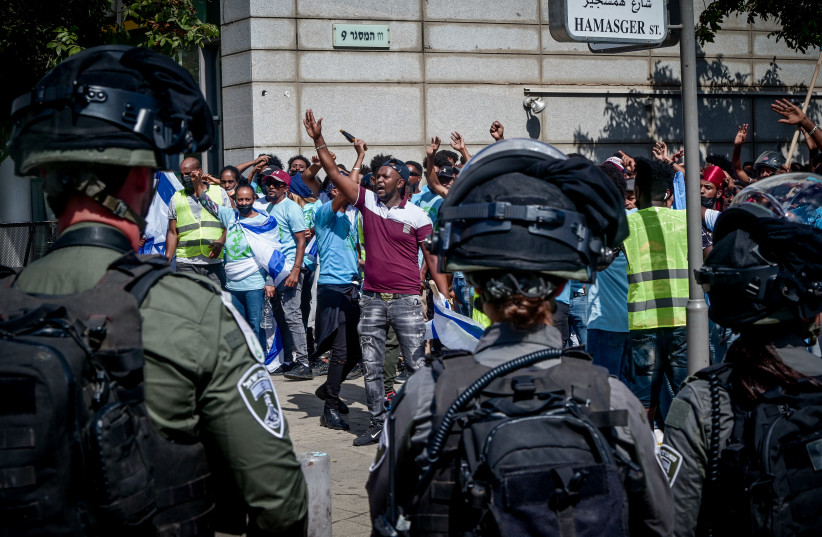Israel could change Basic Law to allow mass deportation of Eritreans
National Security Minister Itamar Ben-Gvir is planning to propose a bill that would override the Basic Law: Human Dignity and Liberty in order to push ahead with the deportation of Eritrean migrants, following riots on Saturday that left more than 100 injured and caused outcry across the political spectrum.
The proposed law seeks to establish provisions of the law on the treatment of illegal migrants and moving towards their deportation from Israel.
“In the Saturday riots, which were only the promo for what awaits us if we do not return the infiltrators to their countries of origin, there is only one responsible: the High Court”
Finance Minister Bezalel Smotrich
Hebrew media also reported that Ben-Gvir will demand arrest warrants for the hundreds of Eritrean rioters who participated in yesterday’s disturbances of the order in south Tel Aviv.
The High Court of Justice has received criticism from politicians over what they call their activist policies that have prevented the deportation of migrants in the past.
 Police guard while Eritrean asylum seekers who oppose the regime in Eritrea protest outside a conference of regime supporters in south Tel Aviv, September 2, 2023 (credit: AVSHALOM SASSONI/FLASH90)
Police guard while Eritrean asylum seekers who oppose the regime in Eritrea protest outside a conference of regime supporters in south Tel Aviv, September 2, 2023 (credit: AVSHALOM SASSONI/FLASH90)‘The High Court is responsible’
Finance Minister Bezalel Smotrich said on Saturday night that “In the Saturday riots, which were only the promo for what awaits us if we do not return the infiltrators to their countries of origin, there is only one responsible: the High Court. For years we have been warning, for years the High Court has prevented any action that would allow the infiltrators to be returned to their homes. That is precisely why we are leading the reforms in the judicial system that will allow elected officials to make decisions and carry them out for the citizens of Israel, their safety and security.”
The Basic Law: Human Dignity and Freedom was implemented in 1992 during the tenure of then high court president Aharon Barak, and is seen by proponents of the judicial reform as the starting point of what they say is overreaching by the court.
Section 12 of the law restricts amendments to the law, stating “This Basic Law cannot be varied, suspended or made subject to conditions by emergency regulations,” which means if Ben-Gvir’s bill is to pass, it will almost certainly face judicial review.





Comments are closed.